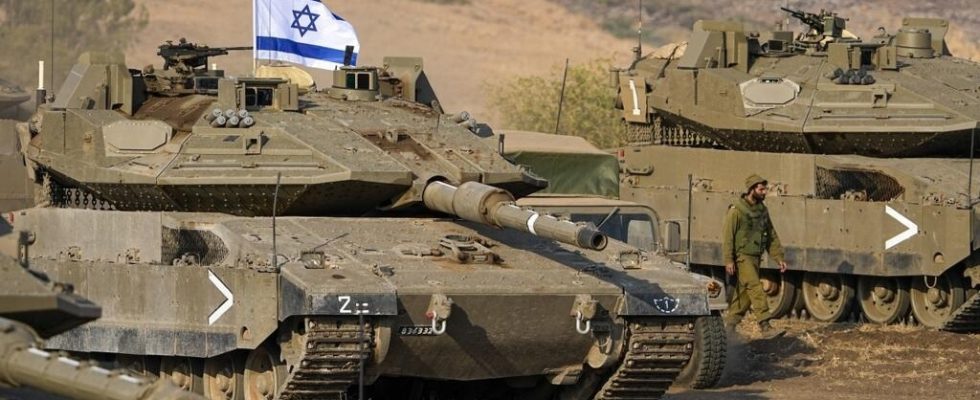Joseph Bahout, director of the Issam Farès Institute of Public Policy and International Relations at the American University of Beirut, analyzes the war between Israel and Hamas, and the role of Lebanese Hezbollah in this conflict, on Guilhem Delteil’s microphone.
3 mins
RFI: There have been three clashes since Saturday October 7 between Hezbollah and Israel, but they nevertheless remain contained. Are we in a configuration where the two parties are sending messages to each other without wanting escalation or in the beginnings of an open conflict?
Joseph Bahout: We are in an exchange of messages which will remain contained. The calculations of one or the other could change in the event of an unwanted slippage by one or the other party, or if the conflict in Gaza enters another dimension. But this exchange of messages between Israel and Hezbollah is something that has been going well since almost the end of the 2006 conflict. I think we are going to stay in this configuration, at least as long as the Gaza front does not overturn, which would probably be to the disadvantage of Hamas, or There is an Israeli ground offensive which is becoming extremely unbearable for public opinion. At that point, Hezbollah may need to shift into higher gear. But even then, I think purely Lebanese considerations could be a deterrent.
Are these internal considerations in Lebanon that are currently holding Hezbollah back?
A conflict with Lebanon today would be devastating at the internal Lebanese political level. The country is on the ground economically: it will not be able to support a war against Israel. The exodus of the Israeli population from South Lebanon, if there is an Israeli ground operation, would be a disaster for Hezbollah, which would have to manage a humanitarian catastrophe. And then, on the other hand, Hamas does the work. From their point of view, he does it “well”. All of this constitutes deterrents.
Israel also has no interest in opening a Lebanese front. The Gaza front is already proving more difficult than they thought, and a Lebanese front could be extremely devastating for Netanyahu, the Israeli military and perhaps even Israel. Everyone knows: Hamas’ capabilities no longer have anything to do with what they were in 2006. Today, by the Israelis’ own admission, it is an army capable of standing up to Israel, and perhaps even do what Hamas has already demonstrated: seize Israeli territory, and perhaps seriously harm some vital installations in Israel.
Read alsoIsrael-Hamas war: Palestinians in Lebanon show their support for their Gazan brothers
What could lead Hezbollah to strengthen its support for Hamas, its ally, by opening a front in northern Israel?
Going to war would be completely different. This would mean moving on to battles, land actions… This decision responds to geopolitical imperatives which will be, ultimately, probably decided by Iran. I believe that this whole operation, if it grows, risks increasing in power and involving actors who have been more or less discreet until now, namely Iran, perhaps Syria tomorrow, Hezbollah… The Houthis in Yemen have also threatened to intervene, although I’m not sure what they could do.
And all this is very linked to regional dynamics. If this conflict takes on a scale that goes beyond that of Israeli territory and Gaza itself, I believe that we could see very unexpected things. I don’t see any risk of a slippage occurring in the coming days. Obviously nothing can be ruled out. But today, everything shows that the actors do not want an escalation.
Read alsoIsrael: an “emergency government” formed for the duration of the war against Hamas
